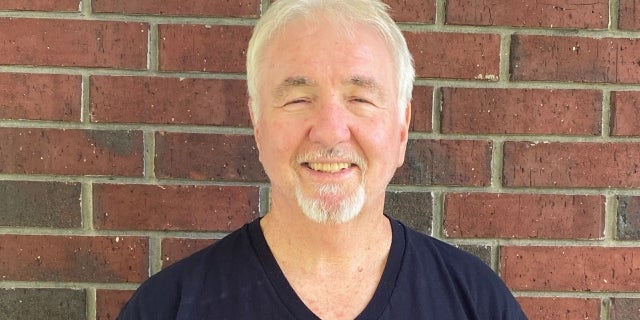James “JC” Marshall had dealt with chest pains periodically for some time and did not think much of it. Not until he heeded the advice of one Oklahoma Heart Institute doctor and took matters into his own hands, did the Arkansas resident finally improve his long-term outcome.
“It’s really changed my life because I don’t have to worry about it now,” he said.
Despite Marshall’s efforts to downplay his chest pains, his primary care physician ordered a stress test. That’s when Marshall learned there was reason for concern.
“About nine minutes into the stress test, I went into AFib (atrial fibrillation) and had to stop. That was the first time I was aware of it. I told the person who ran the test I felt fine because I thought I was,” Marshall said. “I guess I had experienced AFib before and didn’t even know it.”
His primary care physician prescribed a couple of medications, hoping that would remedy Marshall’s symptoms. But even with his new treatment, he was still having multiple AFib episodes on a monthly basis.
Marshall’s next option was an ablation procedure to treat his AFib. The procedure is intended to break up the electrical signals that cause irregular heartbeats and help maintain a normal rhythm. David Sandler, M.D., director of electrophysiology at Hillcrest Medical Center, performed the ablation on Nov. 17, 2021.
While the ablation would likely improve his outcome, there were additional steps for Marshall, an overweight diabetic with high blood pressure, to do if he was to take full advantage of the procedure.
“After Dr. Sandler did the ablation, he told me, ‘I’ve done my part. If you want this ablation to be successful, you need to do your part,’” Marshall recalled.
Following his recovery from surgery and as the new year neared, Marshall had his sights set on taking control of his health by changing his dietary and exercise regiment to begin 2022.
“At the first of the year, I set a goal of focusing on my health for 180 days,” he said. “I thought that would be enough time to make some real changes.”
Marshall set a goal of exercising at least three times a week and utilized a weight loss app to help calculate his calorie intake.
“It was amazed at the calories that were in the food I was eating,” he said. “Ketchup, barbeque sauce, mayonnaise, salad dressing. It’s amazing.”
Weighing 288 pounds in January 2022, Marshall had lost more than 60 pounds as of mid-August. His energy level has continued to increase and the only medication he takes is for his AFib.
“I’m 180 degrees from what I was,” said Marshall, who plans to continue his lifestyle changes. “There would be days when I couldn’t hardly do anything. Now I can do so much more.”
At age 72, Marshall enjoys life more than he has in quite some time. He encouraged others facing possible concerns with their cardiac health to not ignore the signs like he did.
“If they could have the same success or results, don’t hesitate,” Marshall said. “I put it off for months. I just got to the point where I was wasting my days because I didn’t feel like doing anything.”
If you think you may have symptoms related to AFib, talk with your provider. You can also schedule an appointment by calling 918-592-0999 or by completing the form on our website.

